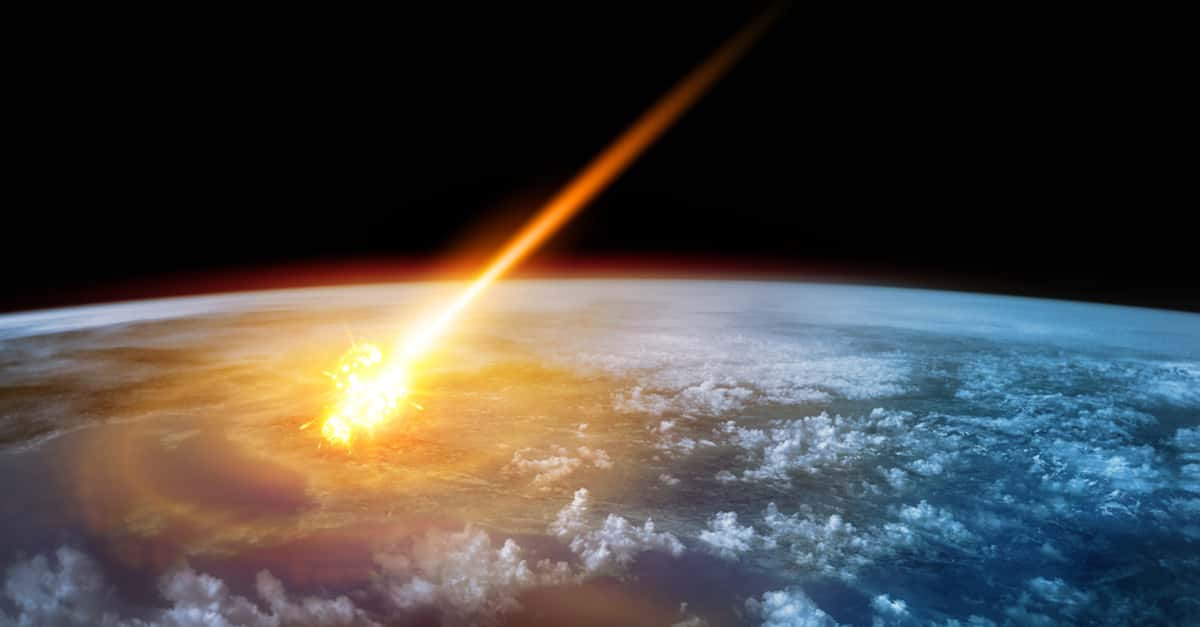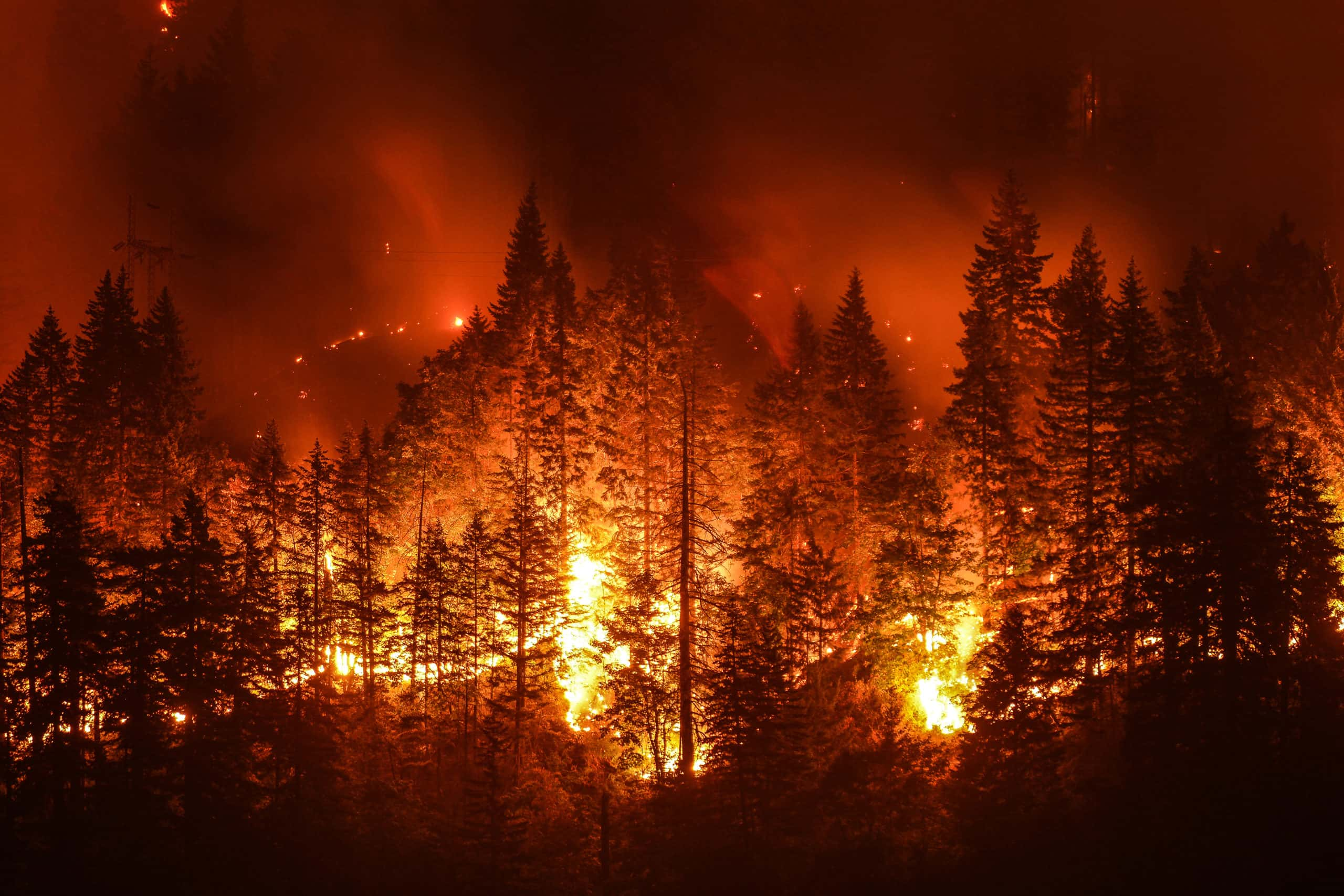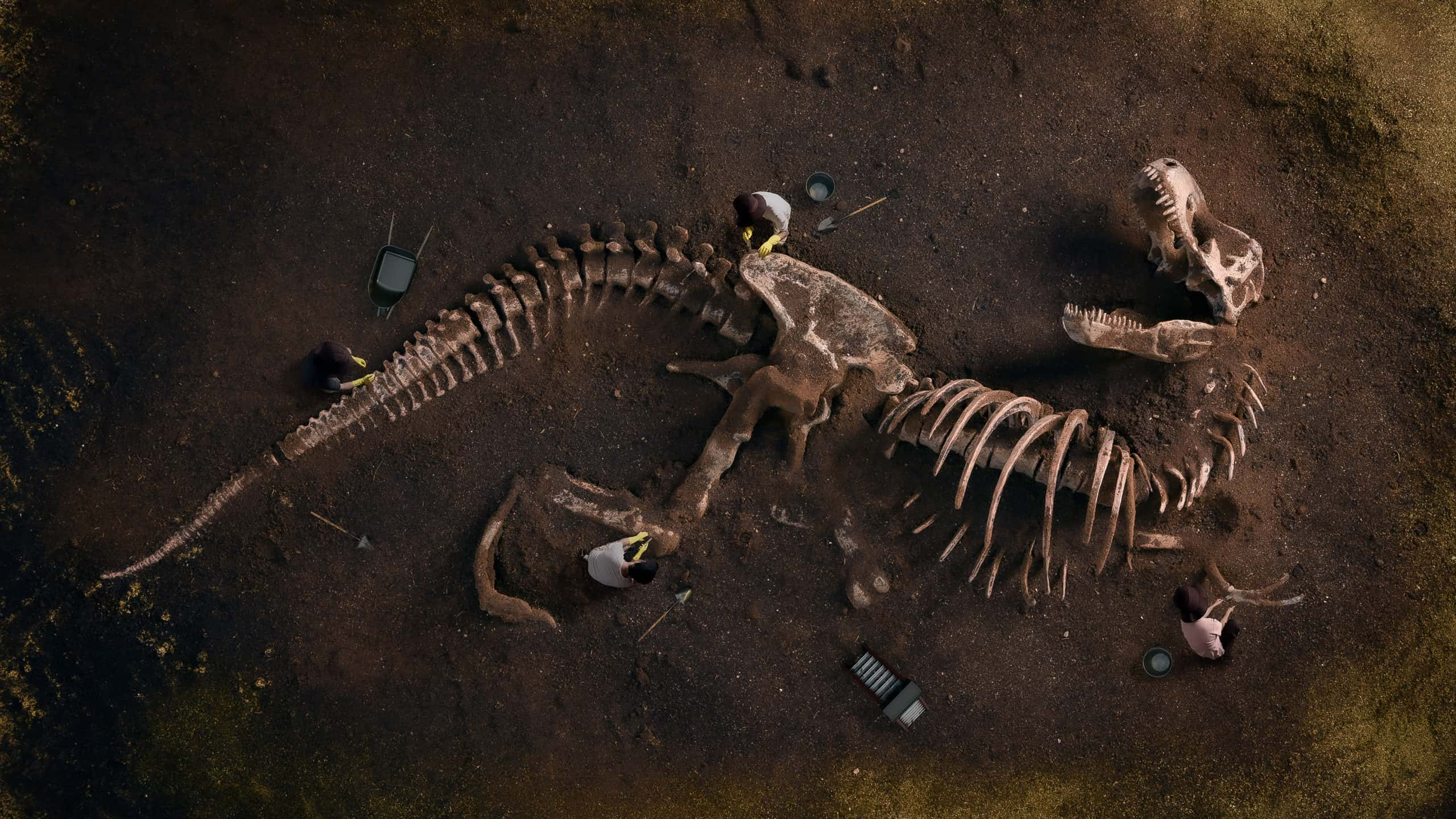The dinosaurs are gone. Well, they're not really gone. I can see a dinosaur out my window right now. But, when 99% of people talk about dinosaurs, they aren't talking about the cardinal sitting in my backyard. We're talking about T-rexes and Triceratops—they're gone.
We know why they're gone, too: A big meteor. Simple explanation. Giant asteroid hits the Earth, big boom, and no more dinosaurs. But, it shouldn't surprise you to know that there's a little more to it than that.
How exactly did a single asteroid strike cause the dinosaurs, the most dominant animal group on Earth, to go completely extinct? Let's go back to that day and find out.
A Light In The Sky
One day around 66 million years ago, the dinos were out and about all around the world, living their regular old boring dino lives. Some of them might have noticed a light in the sky getting brighter and brighter, but that's about it—until it was too late.
Now, space rocks run into the Earth all the time. It's usually not a big deal. But when that rock is nearly 10 miles wide, like the asteroid we're dealing with here? Now that's a different story. Picture Mount Everest crashing into the ground at nearly 20 km per second. Except—it was even worse than you're imagining.
The asteroid landed near the modern Yucatan Peninsula in Mexico. Upon impact, it released more than a billion times more energy than the nuclear bombs dropped on Hiroshima and Nagasaki.
Unfathomable Destruction
Countless animals within hundreds of miles were vaporized instantly—but they were the ones who got off easy. They never knew what hit them—while countless other animals were in for a much more painful end.
The impact ejected 25 trillion metric tons of material into the atmosphere. Some of it had enough velocity to carry it right out into space—but most of it followed the most basic law of physics: What goes up, must come down.
Heat Wave
Obviously, massive chunks of rock falling from the sky represented a pretty big health hazard to any dinosaurs remotely close to the impact—but in truth, that was the least of their worries. As the ejecta careened back to Earth, it superheated the atmosphere, causing extremely high temperatures the world over.
We're not sure exactly how hot things got, or for how long, but it was definitely no ordinary heat wave. The sheer temperature caused forests, entire continents away, to erupt into flame.
The End Of The World
But flying rocks and scorching heat were just a part of the problem. Winds over 1,000 miles per hour flattened everything near the impact site. Tidal waves up to a kilometer high rocked shorelines. Some of the strongest earthquakes the world has ever seen shook the land, even thousands of miles away.
Even in the most distant corners of the Earth, animals felt the effects of the crater within moments—and yet the desolation still wasn't over.
Winter Is Coming
While large chunks of rock rained down on the Earth soon after the impact, unfathomably massive clouds of dust remained in the atmosphere. After the initial blast of heat, maybe you'd think a little time in the shade would be nice—but not like this. The dust clouds blanketed the Earth for as long as a decade.
The resulting global winter devastated the food chain in every climate on Earth. For the vast majority of creatures that had managed to survive the initial apocalypse, such a rapid shift in the world's climate was the final nail in the coffin.
Gone Forever
By the time the dust had settled, nearly 75% of life on earth had gone extinct. Whether they died fast or slow, no animal species weighing more than 55 pounds survived. That meant the dinosaurs, which had ruled over the Earth for over 100 million years, were nearly completely wiped out. Only a single lineage of small dinosaurs survived: birds.
Thanks, I Guess?
So that's how something as simple as a single asteroid could cause global extinction—but, in a way, we should be thanking that huge rock. Dinosaurs ruled the Earth for over a hundred million years. Mammals had evolved, but they were almost all little things, scrambling in the undergrowth under the feet of giants.
With the dinosaurs—not to mention pterosaurs, mosasaurs, and other large reptile groups—gone, other creatures could fill the void they left. Over the next 66 million years, mammals filled that void, taking over nearly every niche once dominated by dinosaurs. Without that asteroid, for all we know, dinosaurs would still rule the Earth, and us mammals would still be trying our best not to get stepped on.















